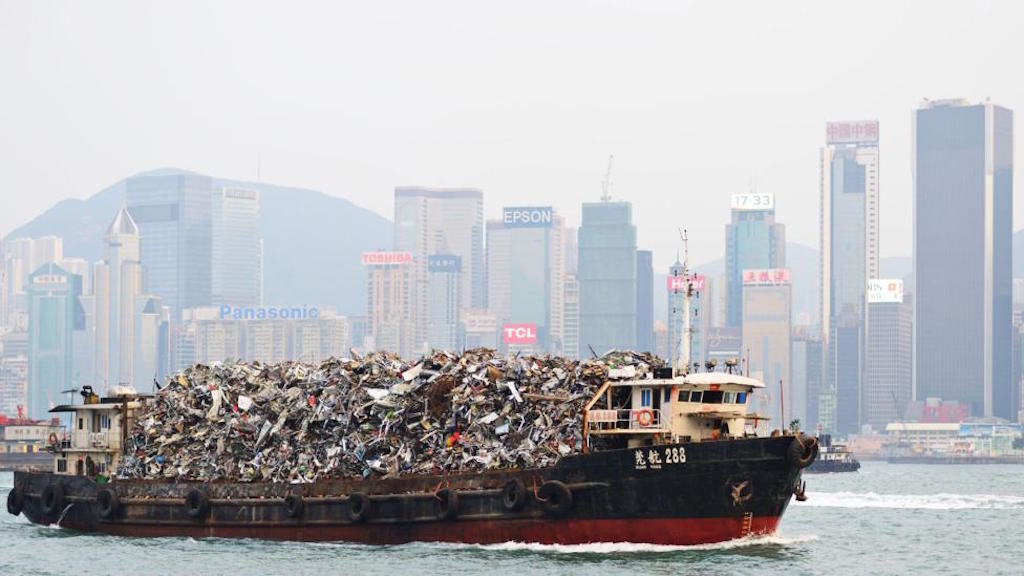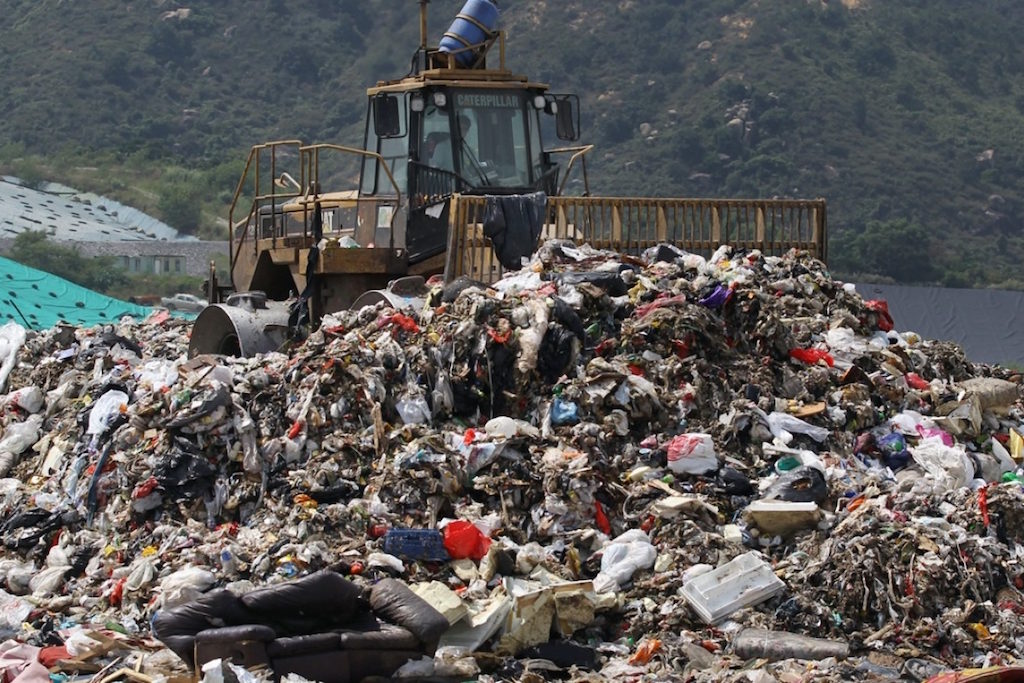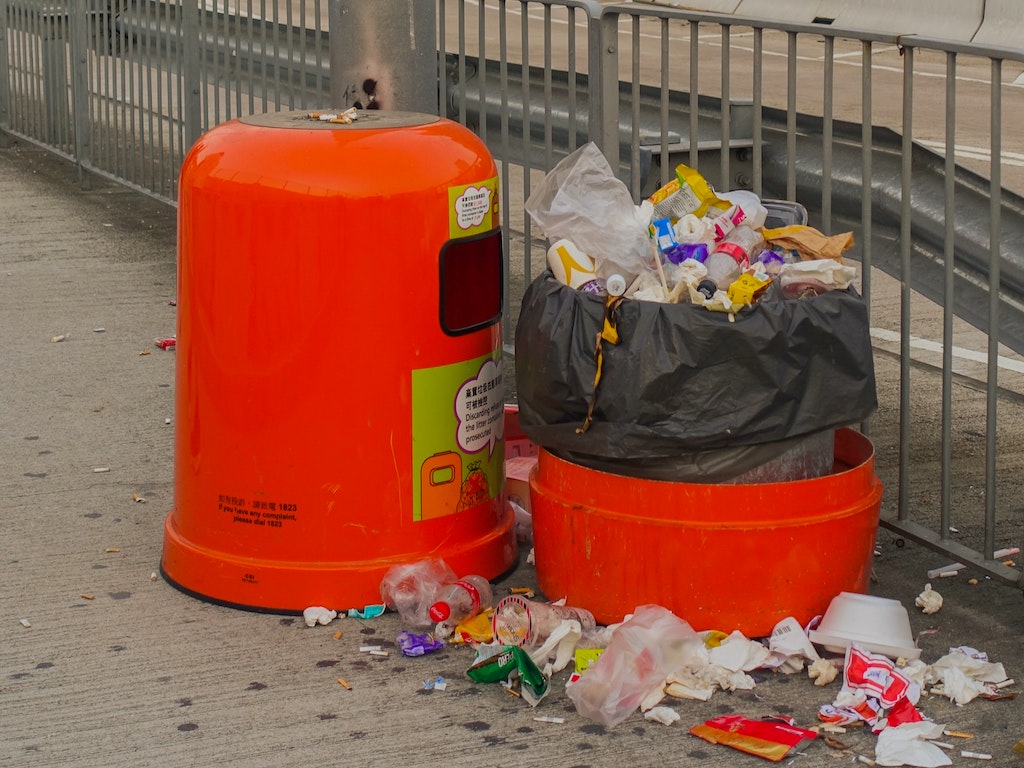5 Mins Read
Hong Kong has for years battled a huge waste problem. Now, the most recent figures released by the Environmental Protection Department (EPD) indicate that it’s getting even worse: the rubbish disposal rate per person in Hong Kong has reached the worst levels since records began in 1991. While some of this waste was attributed by Typhoon Mangkhut, which battered the city in 2018, we cannot ignore the poor recycling infrastructure and throwaway consumer culture that has fuelled our overflowing landfills. In the wake of this news, environmental activists and groups have collectively pointed fingers at the lack of governmental action to combat the city’s (and the world’s) waste crisis.
On Monday, the EPD released new figures on the city’s landfilled waste. It revealed that each Hong Konger sends an average of 3.37 pounds of municipal solid waste to landfills every single day in 2018. In total, this adds up to 5.87 million tonnes of solid waste, which includes domestic, commercial and industrial debris, a marked increase from 5.66 million tonnes in the year before. This is the highest level of waste since 1991, the year which records for landfill waste began.
While governmental figures have attributed some of the growth to Typhoon Mangkhut, which generated large amounts of waste due to fallen debris, broken infrastructure and wildlife loss, even accounting for the typhoon’s impact would see the average waste figures rise from 3.1 pounds to 3.3 pounds per person each day. This indicates that much of the waste increase result of years of government neglect and inaction over Hong Kong’s waste problem. Progress on the proposed November bill to introduce a waste-charging scheme was stalled when committee meetings were cancelled during Hong Kong’s months of social unrest. Despite the fact that the Legislative Council’s meetings have since resumed, there have been no plans to begin discussions on the implementation of the waste bill.
“The government has to take the lead by speeding up the passing of the proposed waste-charging scheme,” said executive director of local NGO The Green Earth Edwin Lau. He added that given the sharp and worrying rise in waste, the government has no time to lose and must take action “rather than shirking its responsibility.”

In addition to halting plans for much-needed waste control legislation, the government has over many years failed to implement any effective and accessible recycling infrastructure to combat the city’s notoriously low recycling rates. According to the latest figures, the city’s overall recycling rate stands at a mere 30%, down from 32% in the year before. While the authorities argue that this downfall is due to the weak export market for recyclables, green groups say that the city’s existing infrastructure is incapable of handling rising consumption rates on top of mainland China’s waste import ban since 2018.
“When China stopped accepting waste imports, our waste increased and recycling rates decreased. On the other hand, the government needs to quickly implement its centralised plastic recycling policy,” said environmental advocacy director of The Green Earth Hahn Chu.
The government introduced a centralised plastic collection programme in October, which initially rolled out in the Eastern District, but campaigners have repeated that it is simply not enough. Another scheme, which the government rolled out earlier this year, focused on fighting the city’s plastic pollution disaster through reducing disposables through incentive programs in major fast food chains. But given that Greenpeace researchers in April found an 11 fold increase in microplastic pollution in seas, overall waste keeps rising and recycling is down, these meagre initiatives fall far from the mark.
To top it off, the most recent government measures have worked in the other direction, to further hamper the city’s low recycling efforts. Only mentioning that the move was based on “recent social circumstances,” Hong Kong’s largest waste contractor Baguio – who is only one of two companies in the city operating recycling services for glass bottles – was ordered by the EPD to suspend the collection of glass and withdraw their bins from the streets.

Not only will this work to worsen Hong Kong’s dismal 10% recovery rate for glass, it increases the chances for used glass bottles to simply be dumped on sidewalks and left to shatter into too-small shards to be remanufactured and recycled. Glass pieces can take as long as 1 million years to decompose, and at the current rate of global glass demand, we are already taking more sand from the earth – 50 billion tonnes – than we can replenish it. By removing the option for Hong Kongers to recycle glass pieces, the move actively contributes to continued disruption of marine ecosystems and microorganisms, leaving coastal communities in Southeast Asia in an even more vulnerable state than they already are to flooding risks.
In the midst of trying times for our city, let’s not allow the downgrading of environmental issues, which must be prioritised for ecological, social and health reasons. This is simply not the best that we can do – the government cannot just expect to solve our staggering waste problem by relying on local civil society groups launch initiatives and incentive schemes to change consumer habits. We continue to be deprived of city-wide adequate facilities to recycle plastic, there remains no action on businesses to cut unnecessary packaging and food waste throughout the supply chain, waste regulations have been stalled, and glass recycling is now non-existent. Individually, we ought to reflect on our deeply wasteful consumer culture as well.
Lead image courtesy of Unsplash.




